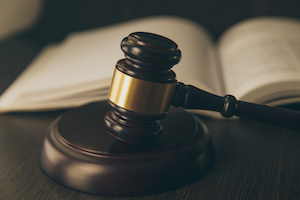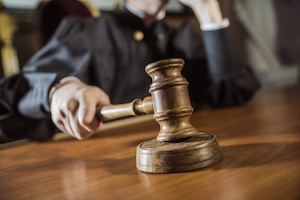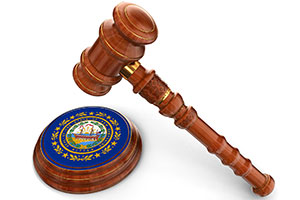Chester Nugent died from a combination of sepsis, sacral decubitus, and malnutrition. Sepsis is a condition caused by the body’s response to an infection. In Nugent’s case, the infection was caused by a bedsore. Sacral decubitus refers to an ulcer, including a bedsore, near the spine in the lower back.
Three days after undergoing hip surgery, Nugent was transferred to Highland Pines, a nursing home in Texas. Nugent had developed a bedsore during his hospital stay. He remained in Highland Pines for about three weeks. His bedsore worsened and he was transferred to a hospital in a state of septic shock. Nugent died a few weeks after the transfer.
Nugent’s estate sued a number of healthcare providers, including Highland Pines. His lawsuit alleged that Highland Pines was negligent in failing to treat the bedsore and that its negligence caused Nugent’s death.
Texas law required Nugent’s estate to serve the report of an expert witness as a condition of bringing the lawsuit. The trial court dismissed the lawsuit after determining that the expert did not have the qualifications that Texas law required. The Texas Court of Appeals reversed the dismissal.
Texas Law
In a malpractice case, Texas requires an expert to prepare a report that identifies the proper standard of care and to explain how a failure to meet that standard caused harm to the patient. The expert’s report must demonstrate that the expert meets the qualifications imposed by Texas law, including an active practice treating patients in facilities that are “substantially similar” to the defendant’s.
In general, any physician can provide an expert opinion about causation. To render an opinion about whether the defendant provided the appropriate standard of care, however, Texas law requires the expert to be practicing in a field that involves the same type of care or treatment as that delivered by the defendant. “Practicing” includes serving as a consulting healthcare provider and being licensed, certified, or registered in the same field as the defendant healthcare provider.
In addition, the expert must be qualified by training or experience to offer an opinion as to the appropriate standard of care and must have knowledge of that standard. An expert report must demonstrate that the expert’s “knowledge, skill, experience, training, or education” relates to “the specific issue before the court.” That requirement should suffice to assure that an expert’s opinion will assist the jury, regardless of whether the expert is currently providing the same kind of care or treatment as the defendant.
Many states, at the urging of the medical industry and insurance lobbyists, have adopted laws that impose unnecessary limits upon the “qualifications” an expert witness must have. The goal of those laws is to protect healthcare providers and their insurers from liability by making it more difficult for injury victims to find expert witnesses who will be deemed “qualified” to testify in support of their claims. Insurance lobbyists know that injury victims struggle to find a doctor who currently practices in the same specialty and who is willing to testify against another doctor.
Qualifications of Estate’s Expert Witness
The estate offered the expert report of Dr. Jeffrey Stone. Dr. Stone is board certified in wound management. He has specialized in that field for 23 years and has treated hundreds of patients for chronic, non-healing wounds. A large percentage of his patients suffer from decubitus ulcers.
Dr. Stone’s report explains that he has “extensive experience of providing wound care in the nursing home/acute and long-term rehabilitation facilities that are competitors of and substantially similar to Highland Pines.” He has written orders for the care and treatment of patients suffering from decubitus ulcers and has supervised the execution of those orders by nurses. He has served as the medical director for wound care at several nursing homes and has lectured “nursing staff on prevention of wounds and interventions that they would do to improve patient outcomes.”
Trial Court Ruling
While there is no doubt that Dr. Stone was eminently qualified to determine the standard of care for the treatment of bedsores, Highland Pines complained that he did not demonstrate his “specialized knowledge of the protocols, policies, or procedures of a nursing home.” The trial court agreed. The trial court also determined that Dr. Stone’s report did not demonstrate that he was “actively practicing in a nursing home.”
The trial court’s dismissal of the estate’s malpractice claim served the goal of protecting the pocketbooks of an allegedly negligent nursing home at the expense of a victim whose death was, in Dr. Stone’s opinion, caused by malpractice. Protection of pocketbooks is the unspoken intent of Texas law, but the trial court’s application of the law in this case demonstrates the potential injustice of disregarding an expert’s actual qualifications to render expert opinions.
Appellate Decision
The Court of Appeals noted that the estate’s claim was not based on Highland Pines’ “protocols, policies, or procedures.” Rather, the estate’s claim was that Highland Pines failed to follow the appropriate standard of care when it neglected to treat Nugent’s bedsore.
The appropriate standard of care did not depend upon the adequacy of the nursing home’s “protocols, policies, or procedures.” In fact, the standard of care does not depend on whether the patient is treated in a nursing home, a clinic, a hospital, or a private residence. The care of pressure ulcers requires relief from pressure, regardless of the patient’s physical location.
The appellate court also decided that Texas law did not require Dr. Stone to be actively practicing in a nursing home. Since he “is actively practicing healthcare in a field of practice that involves the same type of care or treatment as that delivered by Highland Pines,” he is qualified by Texas law to testify as an expert in the standard of care for bedsores.
The Court of Appeals reversed the trial court’s dismissal. The estate is therefore entitled to move forward with Dr. Stone as its expert witness.













